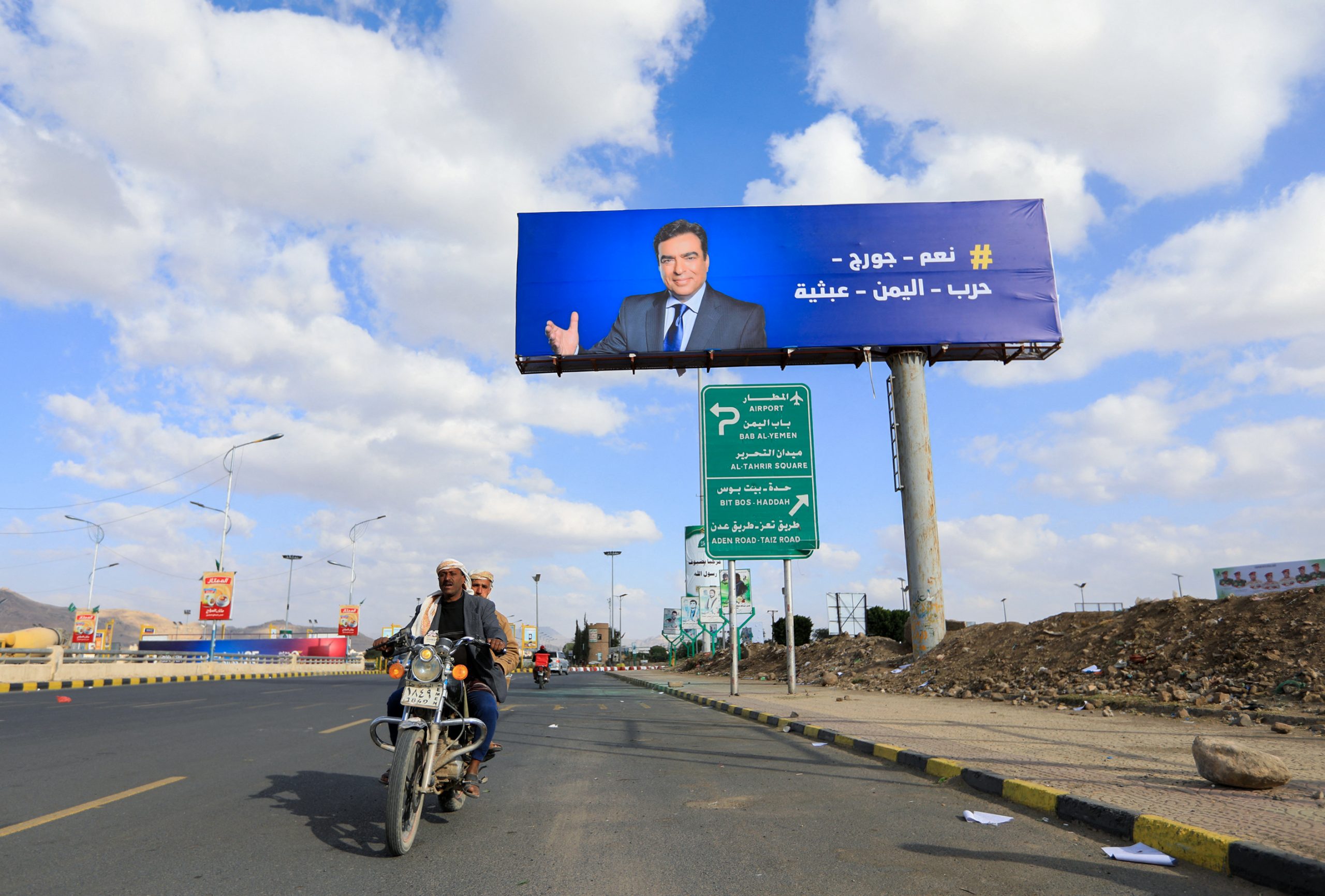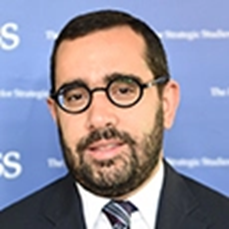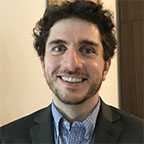
- 06 Apr 2022
Can Gulf States End the Yemen War?
(This event is organised by MEI Political Economy research cluster.)
As all eyes are turned towards Ukraine, a long-neglected conflict in the Middle East is entering its eighth year. Started in March 2015, the Yemen war was initially supposed to be a short and limited intervention led by Saudi Arabia. Today, despite several failed diplomatic initiatives, there is no end in sight. Beyond the humanitarian tragedy for Yemen, the war has turned into the epicenter of regional rivalries, as reflected by Iran’s support to the Houthi rebels, the proliferation of ballistic missiles launched from Yemen to Saudi Arabia, the redeployment of terrorist organisations such as Al Qaida and the Islamic State into Yemen’s ungoverned areas. Moreover, the inability of the Gulf states to succeed militarily in Yemen exacerbated tensions and frustrations with their main Western partner, the US. Against that backdrop, this webinar will discuss the latest developments in the Yemen war and their broader implications for the region – be it in terms of terrorism trends, Gulf-Iran relations or US security policy towards the Middle East.
This public talk will be conducted online via Zoom on Wednesday, 6 April 2022, from 3.00 pm to 4.30 pm (SGT). All are welcome to participate. This event is free, however, registration is compulsory. Successful registrants will receive a confirmation email with the Zoom details closer to the date of the event.
Image caption: A portrait of Lebanese Information Minister George Kordahi is displayed on a billboard in the Yemeni capital Sanaa on October 31, 2021. – Yemen’s Huthi rebels on Sunday put up posters in support of Kordahi whose criticism of the Saudi-led war in Yemen sparked a diplomatic row between Lebanon and Gulf states. Photo: Mohammed HUWAIS / AFP
Listen to the full event here:
Watch the full event here:
Read the Summary of Event Proceedings:
By Kiera Chua
Intern, Middle East Institute, National University of Singapore
The Yemeni civil war between the Houthi movement, the internationally recognised Hadi government, and various foreign allies has been ongoing since 2014. It has accrued over 377,000 casualties, making it the ‘worst humanitarian crisis’ today. Yet, the war is rarely discussed outside of the Middle East. This session explores the international ramifications of the war and will cover the war’s historical context, how Yemen is shaping Gulf diplomacy, and the impacts of a recently-imposed two-month ceasefire by the United Nations (UN).
Dr Elisabeth Kendall, a Yemen specialist, contextualised the civil war by explaining how the Yemeni state was formed. She stressed that Yemen was fractured in the long term, having evolved from a collection of tribal fiefdoms to a divided north and south Yemen and finally, into a tenuously united independent country by 1990. In the short term, the 2011 Arab Spring created a power vacuum when President Ali Abdullah Saleh, who had been in power for three decades, was removed. Although the Gulf Cooperation Council Initiative was launched to facilitate Yemen’s transition to a working democracy, its efforts were cosmetic. Further efforts from 2013-2014 by the UN to run a national dialogue also proved to be ineffective as contentious issues such as the division of territory, power, and resources were not resolved. During this period, the Houthis capitalised on widespread feelings of discontentment towards elites and the Hadi government to take over the capital, Sana’a, and march south in September 2014. This forced President Hadi into exile in Saudi Arabia and marked the beginning of the war.
Dr Kendall broke down the three key groups involved in war and their international allies:
- Houthi movement: a political, military, and increasingly religious group based in the north of Yemen and supported by Iran. Crucially, the Houthis control territory that contains two-thirds of the population and are therefore an integral part of Yemen’s future.
- Hadi government: Although President Hadi’s term ended in 2014 his government is still recognised internationally. Technically based in Aden, in reality, Hadi and his entourage are mostly located in Riyadh and are supported by Saudi Arabia. They claim to hold 80% of Yemeni territory but it is mostly uninhabited.
- Southern Transitional Council: A group of southern separatist states that emerged in 2017 is based in Aden and backed by the UAE. Currently sharing power with the Hadi government under the Riyadh Agreement, a marriage of convenience formed in order to defeat the Houthis.
The most recent development in the war is a two-month ceasefire brokered by the UN, which began during the holy month of Ramadan. It is a major accomplishment being the first ceasefire agreed to by all sides since 2016. However, Dr Kendall warned that it should not be relied on, given that previous truces have had limited success; she predicts that the current ceasefire will last, at most, until the end of Ramadan. Still, she agrees that it is a positive sign and an opportunity for dialogue to facilitate a political process.
Mr Emile Hokayem, who specialises in political and conflict analysis, provided a regional perspective of the Yemen war, describing how Yemen’s relationship with the Gulf states has changed over time. Initially, Yemen was influential due to its large population, size, and Aden’s role as a trading hub. However, the discovery of oil in the Arabian Peninsula abruptly shifted Yemen’s position from a regional epicentre to a fragmented problem state. The Al-Qaida insurgency and the rise of the Houthis have further demonstrated how Yemen has become a regional security concern over the course of the past century. For the Gulf states, this raises the question of what to do with Yemen: should it be integrated into the regional system? Isolated, ignored or controlled?
Saudi Arabia and the UAE specifically have had interests entrenched in Yemen since the early 21st century when AQAP began to emerge. This was a turning point at which Yemen transformed from a political issue into a military counter-terrorism one. From 2011–2012 following the GCC transition initiative, the Gulf states handed off the ‘hot potato’ issue of Yemen to the UN, claiming to have fulfilled their responsibility in fostering democracy. Yet, the takeover of the Yemeni military and state by the Houthis in 2014 raised serious concerns against the backdrop of ‘festering problems’ in the region (Syria, ISIS, the Iran nuclear deal, etc.). This presented an opportunity for Saudi Arabia and the UAE to display their strength and competency by militarily taking on the Houthis. The Gulf intervention in Yemen gained UN Security Council approval and was successful although extremely violent. However, in the long term, it was conceptually problematic for three key reasons. Firstly, the strategy of using air power and local forces was one dimensional. Mr Hokayem asserts that it was misguided for Saudi Arabia to assume that fighting the war from a distance would result in actual political change. They also underestimated the resilient nature of the Houthis who, despite not being militarily advanced at the time, were able to survive air attacks and use guerilla tactics. Secondly, the Gulf partners lacked a strong leader who could contend with the Houthis since Hadi had been exiled to Saudi Arabia. Finally, the misguided rhetoric of the kingdom that the war in Yemen would be quickly and easily won when in actuality the Houthis were challenging to eliminate, forced Saudi Arabia to turn to destructive strategies.
One of the major outcomes of Saudi Arabia’s intervention is that the Houthis grew closer to Iran, who later supplied them with weaponry. Mr Hokayem disputes the Western perspective that the Saudis forced the Houthis towards Iran; he argues that the Houthis becoming an Iranian proxy was inevitable, although intervention did accelerate this process.
Overall, Mr Hokayem asserts that Saudi Arabia should not be overly criticised. In comparison to similar regional situations such as Iran’s intervention in Syria, Saudi Arabia has adopted a more balanced approach. It recognises that the Houthis must be a part of the future government and can’t simply be eliminated. Saudi Arabia is also open to replacing Hadi with a stronger figure and will tolerate Yemen becoming a federal state. They have even invested money into securing human assistance for Yemen; Mr Hokayem expects that if there is a political settlement, the Saudis will likely fund the rebuilding of Yemeni infrastructure. Furthermore, the international community can check Saudi power if needed. However, the answer to how Saudi Arabia and the UAE can actually build leverage against the Houthis remains to be seen and with Iran supplying the Houthis with ballistic missiles, kamikaze boats, and long-range drones, Yemen is more of a concern than ever.
To conclude, at present Mr Hokayem has an increasingly sober view of what can be achieved in Yemen. He asserts that the war is no closer to a conclusion than before the Saudi intervention and although he agrees that the recent ceasefire is positive, he critically sees no political foundation for a sustained dialogue.
Highlights from the Q&A Session
Because of the lack of strong alternatives to the Houthis (e.g. the weak Hadi government) will the Gulf have to learn to coexist with the Houthis much like the Taliban in Afghanistan?
Yes. Dr Kendall and Mr Hokayem agree that ‘like it or not, we will all have to work with the Houthis’ and that coexistence is a certainty. Both assert that the Gulf capitals recognise they can’t destroy the movement and must cooperate with it. Dr Kendall posits that recent increasing supremacist and religious overtones within the Houthi leadership could be a cause for concern.
Does the Gulf need the UN to help end the war?
Yes. Dr Kendall and Mr Hokayem agree that the Gulf needs the UN. Dr Kendall stresses that it will be essential for mediation. Although she was critical of previous efforts, she is cautiously optimistic about the new UN special envoy Hans Grundberg who brokered the two-month ceasefire. Mr Hokayem believes that the Gulf welcomes the UN because they are keen on making Yemen an international concern and see it as an opportunity to show that they are making a diplomatic effort.
Can you see the Houthis becoming a legitimate, responsible political actor in Yemen?
Dr Kendall states that it is ‘difficult to imagine but it is necessary’. She believes that the appropriate course of action is to promote more moderate Houthis and sideline hardliners since thus far, the opposite has been done.
Do the recent Houthi attacks in Saudi Arabia and the UAE significantly complicate Yemen’s future? Could they precipitate a more hardline Saudi/Emirati stance?
Yes. Mr Hokayem believes that recent Houthi attacks will polarise the Saudis and Emiratis especially because the Houthis have targeted civilians, oil facilities, and airports. The volume of attacks (250+ ballistic and cruise missile attacks) has been an embarrassment to Saudi Arabia and the UAE and has strengthened their cause to have the Houthis recognised as a terrorist movement.
About the Speakers

Senior Fellow for Middle East Security
International Institute for Strategic Studies
Dr Elisabeth Kendall
Senior Research Fellow in Arabic and Islamic Studies
Oxford University’s Pembroke College
[Moderator] Dr Jean-Loup Samaan
Senior Research Fellow
Middle East Institute, NUS
Mr Emile Hokayem specialises in political and conflict analysis, including the wars in Syria, Iraq and Yemen; relations between Iran and its Arab neighbours; the rise of non-state actors, including jihadi groups and Hizballah.
Mr Hokayem joined the IISS in 2010. Before that, he worked as the political editor and international affairs columnist at The National in Abu Dhabi and from 2004 to 2008, as the research fellow for the Middle East at the Stimson Center in Washington, DC. He regularly provides analysis on Middle East affairs to governments, corporations and the media. His commentary has featured in The New York Times, The Financial Times and The Economist.

Dr Elisabeth Kendall is Senior Research Fellow in Arabic and Islamic Studies at Oxford University’s Pembroke College. Her current work examines how militant jihad movements exploit cultural traditions and local dynamics. Previously, she held positions at the Universities of Edinburgh and Harvard, as well as serving as director of a UK government-sponsored centre focused on building Arabic-based research expertise.
Dr Kendall has lectured at governmental, military and scholarly institutions all around the world and is a frequent contributor to international television and print media. She also sits on a variety of international boards and is Chairman of a grassroots non-governmental organisation in eastern Yemen.
She is the author and/or editor of several books, including ReClaiming Islamic Tradition, Twenty-First Century Jihad and Literature, Journalism and the Avant-Garde. She conceived of the Essential Middle Eastern Vocabularies series, which includes the following titles which she also authored: Diplomacy Arabic, Intelligence Arabic and Media Arabic. She is currently working on a new book called Rock Stars of Jihad. She spends significant time in the field, especially in Yemen.

[Moderator] Dr Jean-Loup Samaan is a Senior Research Fellow specialising in Middle East strategic affairs, with a particular focus on Israel–Hizballah conflict and the evolution of the Gulf security system. Prior to joining MEI, he held various positions in the policy sector. He worked as a visiting scholar with the RAND Corporation (2007-2008) and as an advisor at the directorate for strategic affairs of the French Ministry of Defence (2008-2011). He then gained extensive experience in the domain of military education and training, first as a deputy director for the Middle East Faculty of the NATO Defence College (2011-2016) and as an associate professor in strategic studies with the UAE National Defence College (2016-2021).




